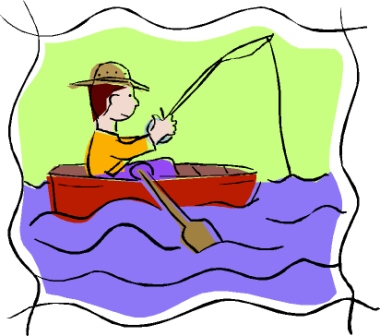Paul, McConnell, Alexander and Whitfield at
Freedom to Fish Rally at Barkley Dam
Republican lawmakers stood together with local leaders and fishing enthusiasts to urge the Army Corps of Engineers to abandon a plan to put up no go zones around ten dams.
Some opposition to the move is based upon a belief that tourism will suffer if boaters and fisherman are prevented from getting close to the dam. Others resent the nanny state aspect of big government.
The alternative argument to opposition to the exclusion areas is that there have been incidents of drowning and near drowning. When a boat strays too close to the dam or a fisherman falls overboard, someone has to come to their aid. That has become the job of rescue squads. Rescue squads especially in rural areas struggle with maintaining expensive equipment and continuous training. The correct rescue boat is not an Ebay find. Training to rescue a drowning person - or retrieving a body is an up close and personal activity.
Fisherman have drowned around the ten dams administered by the Nashville District of the Corps of Engineers. The excerpt below is from the Nashville District website about another of the Corps dams:
"Remember, safety should always come first on or near the water. Of the 128 people that have drowned in Cheatham Lake, only two were wearing personal flotation devices (PFDs). Your life jacket won't save your life unless you wear it! State and federal boating laws require that anyone in a boat under the age of 13 wear an approved PFD unless he or she is inside an enclosed cabin. This requirement applies whether the boat is adrift or under power.
Safety around the dam is extremely important. Below the dam, everyone in a boat, regardless of age, must wear an approved PFD between the dam and the tailwater launching ramp. This mandatory PFD area is clearly marked with large signs. Boaters must also observe the posted "keep out" areas at the power plant. Warning signals sound below the dam when the hydropower units in the power plant are about to start or when the lock chamber is about to be emptied. Boaters must take immediate action to avoid turbulent waters."
The Army Corps of Engineers said in a separate article on their website "Since 2009, three fatalities, one serious injury and ten near misses/rescues have occurred in hazardous waters immediately downstream of dams on the Cumberland River and its adjoining tributaries. Life jacket wear has been ineffective in these areas, since all of the victims who drowned wore a life jacket." (emphasis added) For the balance of the Corps' reasoning for the rule, follow "More" at the bottom of this page.
Western Kentucky has seen its share of fishermen drownings. In a brief Google search, we found three in the last three years. In April 2011, in Livingston County, the Kentucky Fish and Wildlife rescue squad recovered the bodies of two fishermen. In January 2010, the body of a fisherman lost the previous November was recovered in Marshall County. There have been near misses that didn't get covered by the media.
Tennessee Lamar Alexander announced the "Freedom to Fish" legislation on a visit to a Corps dam in his state in February 2013. A press release from the Corps was brief and brisk.
“The U.S. Army Corps of Engineers, Nashville District, was honored to host U.S. Senator Lamar Alexander today at Old Hickory Lock and Dam. During Senator's Alexander's visit, members of the District had the opportunity to show him the hazards (to include spilling and generating releases) within the proposed restricted areas and discuss the District's commitment to providing for the Public Safety while coming into compliance with ER 1130-2-520. As to the proposed legislation that Senator Alexander announced, the Corps cannot comment on pending or proposed legislation.”
One local official was quoted as saying that boaters and fishermen don't need the no go zone, that "we have better sense than that" (to go near dangerous places). If the legislation passes, local rescue squads, police, ambulance and emergency personnel and families will get a chance to find out if that official is right.
They will also find out if additional federal funding will be available for them to retrieve the bodies of those who do not have better sense than to stray too close in their quest for that big catch.
Freedom to Fish sounds appealing. That freedom has no penalty for abuse. Taxpayers pick up the tab for those who push a little closer than is prudent. Freedom may be, as Kris Kristofferson famously wrote, "just another word for nothing left to lose" - but when it comes to legislation that encourages and condones irresponsibilty, we all lose. |







